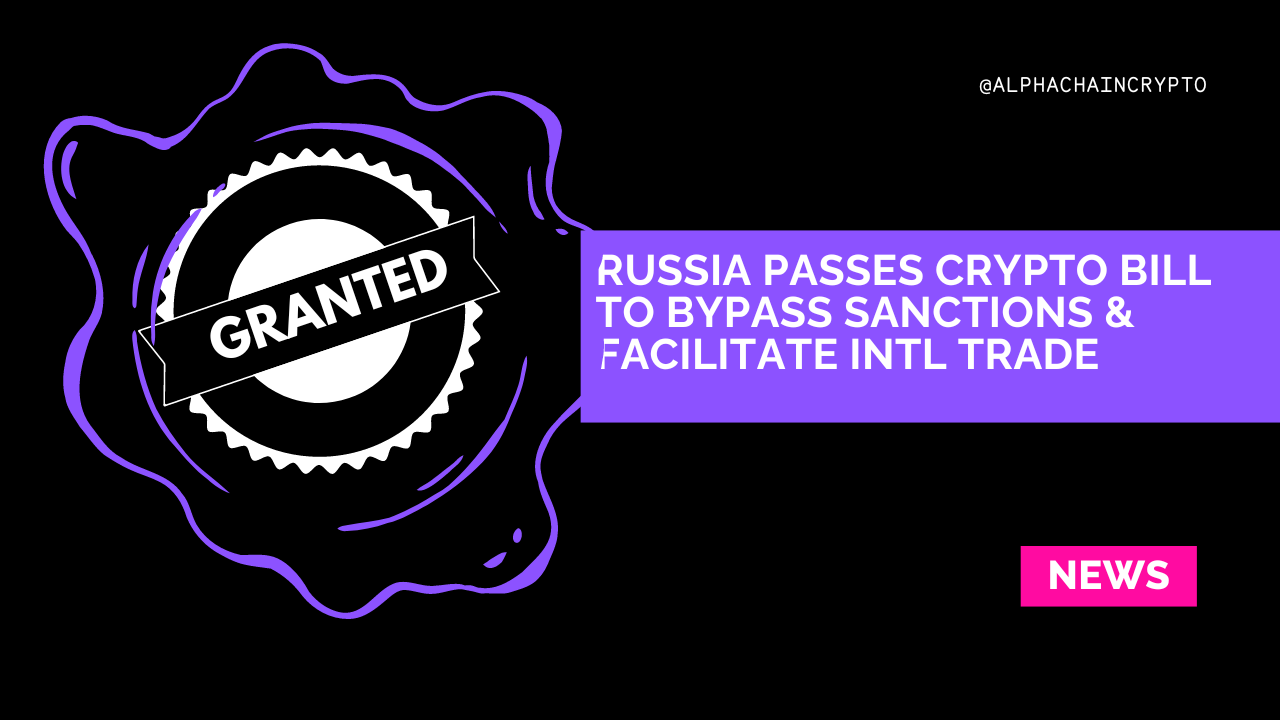Russian lawmakers have approved a new bill allowing businesses to use cryptocurrencies for international trade, a move aimed at circumventing Western sanctions imposed following Russia’s invasion of Ukraine. The law, set to take effect in September, is backed by Russian central bank Governor Elvira Nabiullina. She anticipates that the first cryptocurrency transactions will occur by the end of the year.
The sanctions have caused significant delays in international payments with key trading partners such as China, India, and the United Arab Emirates, as banks in these countries, under pressure from Western regulators, have become more cautious.
Anatoly Aksakov, head of the Duma lower house of parliament, described the legislation as a “historic decision in the financial sphere.”
The central bank plans to establish a new “experimental” infrastructure for cryptocurrency payments, although specific details have not yet been disclosed. This legislation also includes regulations on cryptocurrency mining and the circulation of other digital assets. However, the existing ban on cryptocurrency payments within Russia remains in place.
Russia has experienced an 8% decline in imports in the second quarter of 2024 due to payment delays. Despite efforts to shift to partner currencies and develop an alternative payment system within the BRICS group, many transactions are still conducted in dollars and euros, processed through the international SWIFT system.
The exposure to secondary sanctions has led banks in countries trading with Russia to tighten compliance, complicating payments for imports and increasing costs. Nabiullina highlighted that these payment delays have lengthened supply chains and driven up expenses.
According to a report by Reuters, the law will not lift the ban on cryptocurrency payments inside Russia. The experiment will also forge rules and regulations for mining crypto.

A.k.a – alpha girl. Vinita is the founder of Alphachaincrypto. An English Lit Majors, Vinita bumped into Web3 in 2020 only to realise that tech was her calling. Later, Mathreja worked for some notable brands like Near Education, Biconomy, CoinDCX and top of the line crypto start ups.





